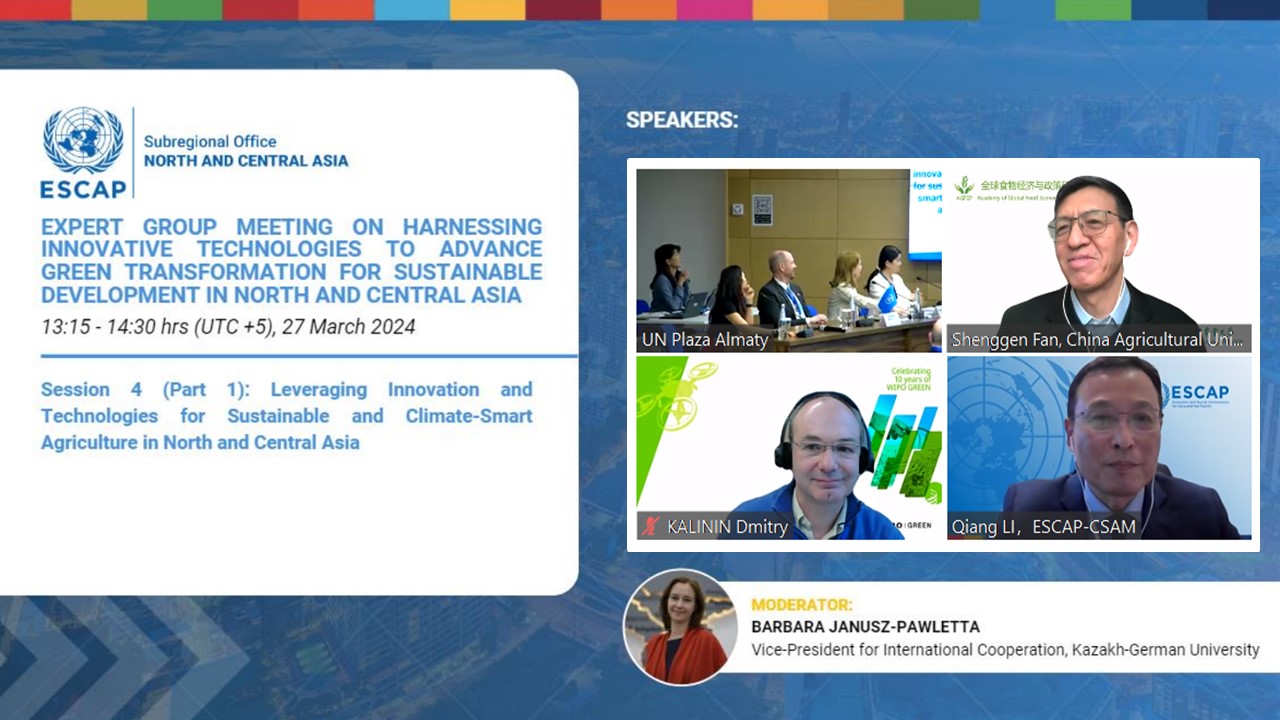CSAM Attends Expert Group Meeting to Promote Mechanization-based Solutions for Sustainable Development in North and Central Asia

On 26-27 March 2024, the Centre for Sustainable Agricultural Mechanization (CSAM) of the Economic and Social Commission for Asia and the Pacific (ESCAP) joined the Expert Group Meeting entitled Harnessing Innovative Technologies to Advance Green Transformation for Sustainable Development in North and Central Asia. The two-day event, organized by the ESCAP Subregional Office for North and Central Asia, provided a platform for deliberations on digital development, sustainable transport and climate-smart agriculture for the advancement of the Sustainable Development Goals in the North and Central Asia subregion.
On behalf of CSAM, Mr. Qiang Li, National Programme Officer, delivered a presentation online at the Session on Leveraging innovation and technologies for sustainable and climate-smart agriculture in North and Central Asia. Addressing the pressing challenges that climate change poses to the agricultural sector in North and Central Asia, Mr. Li underscored that sustainable agricultural mechanization, tailored to the unique environmental and socio-economic contexts of the region, can play a pivotal role in mitigating the impacts of climate change and propelling a sustainable and inclusive economic transformation. He further elaborated on how sustainable and innovative mechanization-based technologies and methods, especially those powered by digital tools such as GPS navigation and remote sensing integrated into agricultural machinery, offer scalable and effective strategies. These advancements can assist farmers in adopting adaptive measures against climate threats, increasing agricultural productivity, boosting the efficiency of farming operations, and enhancing the livelihoods of the rural communities and particularly smallholder farmers in North and Central Asia. He reiterated that achieving a transition to a more sustainable, water-efficient, and climate-resilient agricultural system requires concerted efforts and collaboration among governments, academic institutions, private sector, civil society as well as international development partners.
The collaboration between CSAM and stakeholders in the North and Central Asia region was also noted during the presentation. ESCAP (through CSAM) established a partnership with the World Food Programme and the Administrative Committee of Yangling Agricultural High-tech Industry Demonstration Zone of China in 2020 aiming to promote sustainable agricultural mechanization and particularly cutting-edge technologies and practices that have been verified in the subregion. Since the establishment of the partnership, a series of training workshops focusing on climate-smart mechanization solutions have been organized to address the challenges imposed by climate variations to the agricultural sector in the subregion.
